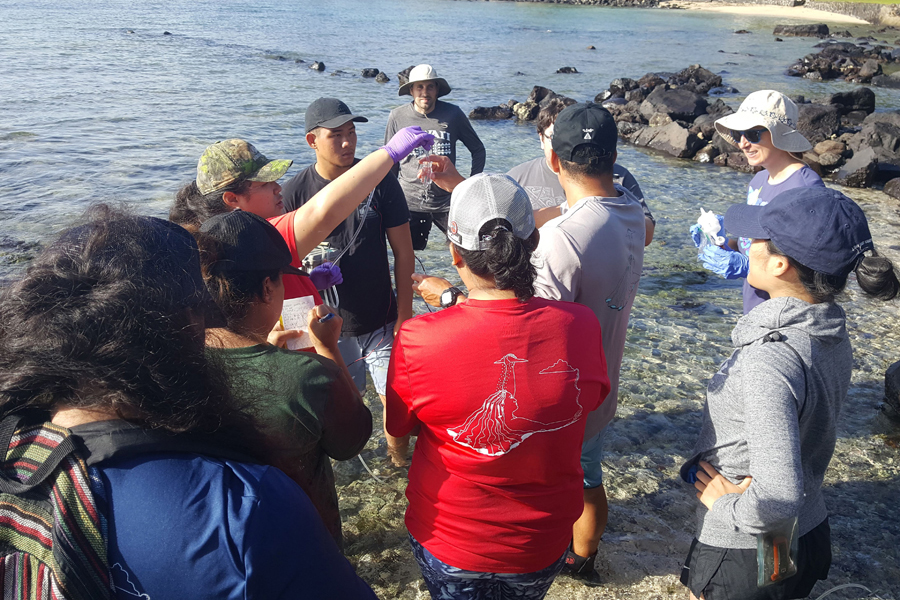Develop, coordinate, and build capacity for educational and community outreach opportunities for PI-CASC

The Pacific Island Climate Adaptation Science Center (PI-CASC) is perfectly positioned to communicate and translate world class research on climate and land use change from work in the U.S. Affiliated Pacific Islands (USAPI). We propose to develop PI-CASC’s capacity to create Science, Technology, Engineering, and Math (STEM) curriculum materials and to engage with, and communicate climate research to, their partners and communities. One role to which PI-CASC is committed is building scientific capacity in the Pacific Island region, which necessitates engagement throughout the entire educational process, from K-12 through post-doctoral appointments, including supporting early career opportunities. Our project objectives include:
- creating K-12 curriculum based on PI-CASC funded research in collaboration with scientists and resource managers;
- developing prototype mobile applications to be used in the field to engage PI-CASC regional communities in research activities;
- collaborating with USGS Risk Research and Application practitioners to develop training, toolkits, and resources for researchers to engage with community stakeholders;
- endeavoring to align ongoing PI-CASC educational outreach activities and planned curriculum development.
PROJECT DETAILS
FUNDED:
FY2020
PI:
Sheree Watson
Program Director, USGS Office of Science Quality & Integrity

